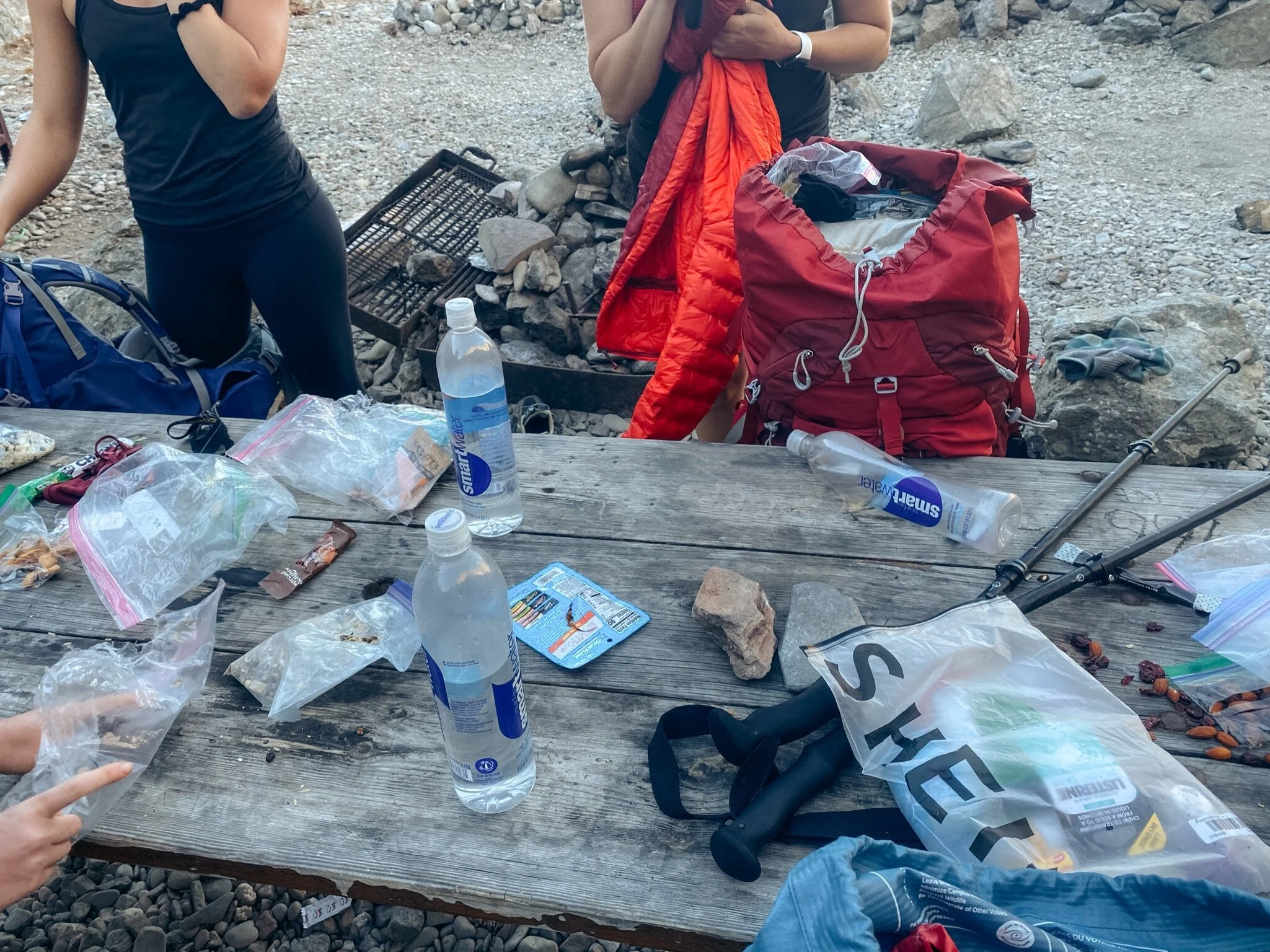How to Properly Follow Leave No Trace Guidelines
We threw our bags down, took off our trail runners, and sprinted into the ocean. Our feet needed to be soaked after a long day of backpacking. We were at Parson’s Landing, a remote beach on Santa Catalina Island. The skies were clear and there were almost no souls in sight. There was nothing to worry about. Or so we thought…
After about 10 minutes in the water, we headed back to our little beach cove where we planned to camp. Why were our bags open? Why was our food all over the place? Were those protein bar wrappers on the ground? Uh oh. The crows. They somehow got into our backpacks, pulled out our bags of food, and ate just about everything they could. They left us with some picked at freeze-dried food. Yum.
We couldn’t believe it. The crows must do this often as they knew exactly how to open our backpacks and exactly what to pull out of them. Unfortunately, they hadn’t learned how to clean up after themselves.
We walked around the cove and cleaned up all their food trash. Pack in, pack out…even if you didn’t get to eat it. It’s important to always carry out your trash and leave your campsite even cleaner than you found it. That way, the next person can enjoy it as much as you did (even if the crows get to them as well).
Thankfully, it was our last night on the Trans Catalina Trail and we still had one full bag of food, coffee packets, and mini tequila shots they never found. We were set.
What is Leave No Trace?
Leave No Trace started as a collaboration between the National Park Service (NPS), US Forest Service (USFS), and Bureau of Land Management (BLM). In 1994, the Leave No Trace Center created a set of seven principles as a guide to reduce impact and preserve the wilderness.
Why is it important to follow?
We always talk about how we can reduce the impact we have on the environment in our daily lives. It’s just as important to remember this while you’re in nature. If you don’t respect the environment and wildlife, not everyone can enjoy the outdoors as much as you do!
Leave No Trace Seven Principles:
1. Plan Ahead & Prepare
Stay on the trails (a.k.a don’t get lost)
Check weather to bring proper gear and equipment
Plan food ahead of time to minimize waste
Pick activities that are fit for every member of your group to ensure safety and avoidance of injuries
2. Travel & Camp on Durable Surfaces
Travel or hike on durable surfaces (rock, sand, gravel, snow)
Always camp at least 200 ft. from water (and trails if possible)
Use existing campsites or areas with the least vegetation
Keep campsites small
In very remote areas, avoid repetitive use of campsites and move campsites each night
3. Dispose of Waste Properly
Human waste
Poop 200 feet from water. Cat holes should be 6-8 inches deep and 4-6 inches in diameter. Cover and place rock over it to keep animals from digging it up.
Pack out all toilet paper (!!!!!!)
Pack out all tampons (for my gals)
Other waste
Pack-in, Pack-out! Carry out all trash and dispose in the correct bin (don’t be like the crows)
Carry out all leftover food so you don’t attract animals
Always wash yourself or dishes 200 feet from a water source. Even biodegradable soaps can affect water quality.
4. Leave What You Find
Don’t dig trenches
Don’t remove plants to set up camp
Don’t cut branches or hammer nails into trees for hanging
Leave all natural and cultural objects exactly where you found them (flowers, branches, plants, etc.). They could be part of a research study or an essential part of survival for an animal.
5. Minimize Campfire Impacts
Always check local guidelines for fire restrictions and consider the fire danger for that time of year (SO IMPORTANT). If you’re in an area where it IS safe to start a fire:
Camp in areas where wood is abundant
Use dead branches as fuel. Don’t cut fresh wood.
Never leave a fire unattended
Thoroughly extinguish all fires and burn all wood to ash
6. Respect Wildlife
Remember that you’re a visitor to their home!
Don’t feed animals (they could get sick)
Don’t approach animals – they can feel threatened and hurt you or themselves (observe from far away)
Don’t pick up animals – they may attack you or have a disease
Always store food properly and use a bear canister when necessary
7. Be Considerate of Others
Be considerate of loud noises, music, lights and phones. Most people go into nature for peace and quiet.
Pass others respectfully on trails (and wear a mask during these COVID times)
I hope this helps you to understand how we can minimize our impact on our beautiful planet. Let’s work together to respect it and take care of it so we can all enjoy it the way we should!

